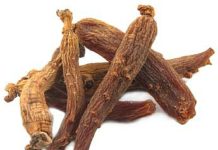By: William Rudolph
For some, gray hair can be a sign of character or give a distinguished appearance. For others, gray hair can be an unwanted, daily reminder of advanced age. Conventional, mainstream approaches to restoring hair’s natural color are often just dyes or other synthetic methods of covering up the gray. Chinese medicine offers an alternative that doesn’t cover up signs of aging but actually gets to the “root” of the issue and can “turn back the clock.”
He Shou Wu (pronounced huh show woo) is a tuberous plant that’s medicinal quality is found in its root. It is native to China and also found in Japan and Taiwan. This herb, sometimes referred to as Fo-Ti or by its Latin name Polygonum multiflorum, is revered in Chinese medicine for its anti-aging and longevity-promoting effects. He Shou Wu means “black haired Mr. He” and is named after an elderly Chinese man who reportedly took the herb to restore his youth and vitality and saw the return of his black hair. This capacity to restore a person’s natural hair color is one of its most famous attributes.
Hair color is produced by tiny hair pigment cells within hair follicles called melanocytes. Melanocytes manufacture a pigment called melanin that gives hair its color. The more melanin that is present, the darker the hair color. When the activity of these melanocytes declines they stop making these pigments, resulting in gray hair. Hydrogen peroxide is produced naturally in the body, but when there is an excessive build-up it interferes with melanin production. Most people are familiar with hydrogen peroxide being used externally on hair to lighten its appearance. Essentially this is what is happening internally, at the cellular level when hair turns gray. The body is lacking an ability to effectively break down and clear out excess hydrogen peroxide that is produced as a by-product of the body’s metabolic processes.
Catalase is an enzyme produced by the body that works to break down and clear out excess hydrogen peroxide. As the body’s production of catalase declines, less hydrogen peroxide is cleared out of the body, melanin production is reduced, and hair turns gray. Together with catalase, another free radical scavenging enzyme present in the body is Superoxide Dismutase (SOD). SOD is excellent at protecting cells against lipid peroxidation and DNA damage. SOD levels in the body can potentially be raised by taking He Shou Wu, perhaps indirectly through the herbs’ effect on the liver and kidneys.
Traditional Chinese Medicine (TCM) states that a person’s hair is a reflection of the strength of the kidneys. It is believed that weak kidney and liver blood are the underlying causes for gray hair and other signs of premature aging. He Shou Wu works on the liver and the kidneys to improve the quality of red blood cells and reduce the buildup of hepatic (liver) fat. This in turn stimulates blood circulation in the scalp, where nutrient delivery is improved, nourishing hair follicles and promoting the production of melanin.
Potency and quality are keys when consuming He Shou Wu. It should have been growing for at least 4 years and it needs to be properly prepared (by a qualified herbalist) to experience the full tonic effects. This is done by slicing the root shortly after harvesting and then boiling it in a soup of black beans. It can then be made into a powder suitable for mixing in smoothies, or it can also be taken in capsule or tincture form.
Resources:
Teeguarden, Ron. The Ancient Wisdom of the Chinese Tonic Herbs. New York, NY: Warner Books -1998.
http://www.naturalnews.com/028709_gray_hair_He_Shou_Wu.html#ixzz1hIhpEWva















[…] because hair color is produced by melanin and it decreases in the hair as we age. Herbs such as He Shou Wu and Nettle Leaf can potentially reverse these processes and bring back the color of your hair. He […]